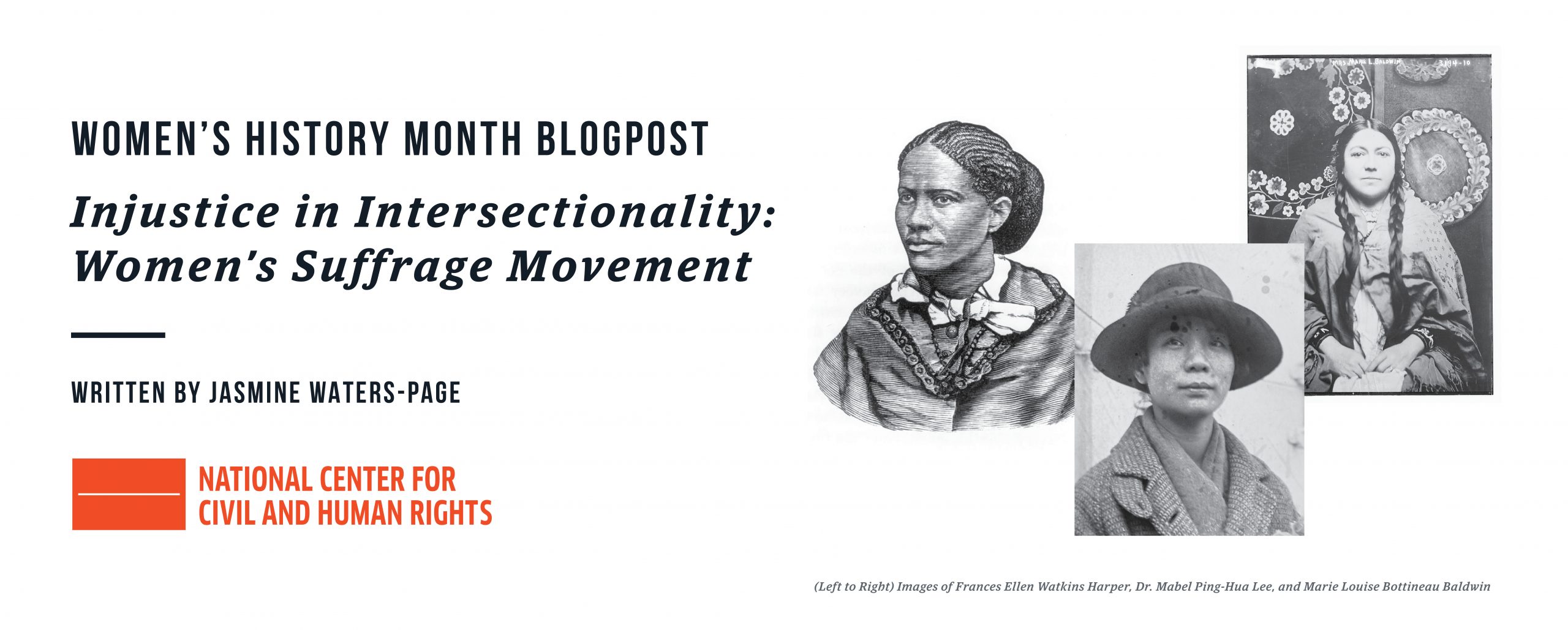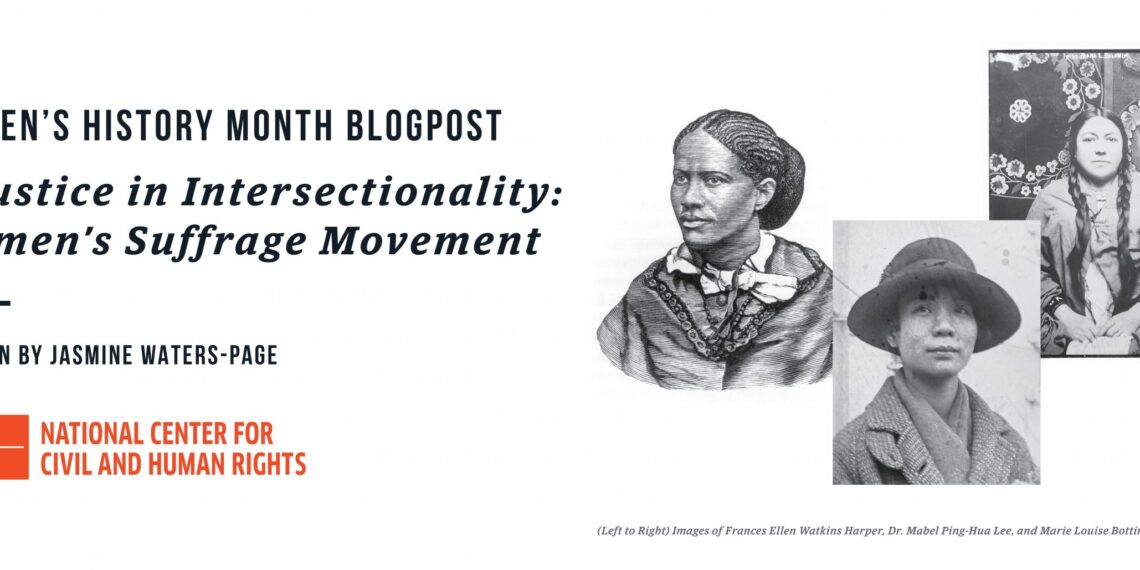[ad_1]
Injustice in Intersectionality: Women’s Suffrage Movement

It’s March, which means it is time to celebrate women and all the work that has been done to uplift women—from the past until today.
When we look back at our history, however, we see those struggles were not immediately won. The road to equality and equity is long, and is paved with stories that have gone unacknowledged and untold. Ida B. Wells-Barnett, the journalist and activist who fought discrimination and injustice said, “The way to right wrongs is to turn the light of truth upon them.”
This Women’s History Month I’d like to “turn the light of truth” upon a major landmark in Women’s History, the Women’s Suffrage Movement. This movement was the fight for women to have equal access to the ballot and the right to vote, which resulted in the passage of the 19th amendment, which states, “The right of citizens of the United States to vote shall not be denied or abridged by the United States or by any State on account of sex.” This amendment legally gave voting rights to all Americans regardless of gender, but that doesn’t tell the full story.
When we think about the Women’s Suffrage Movement, we typically hear accolades for Susan B. Anthony and Elizabeth Cady Stanton. We all too often do not learn about all the women who fought for the right to vote, or the women of color who were refused that right, after the 19th amendment was passed.
Within all movements there are realities regarding intersectionality. Intersectionality, a concept developed by Kimberlé Crenshaw in 1989, is “a lens, a prism, for seeing the way in which forms of inequality often operate together and exacerbate one another.” People are members of multiple communities based in class, race, gender, geography, and so much more—each giving us a piece of who we are. During the Women’s Suffrage Movement, the needs, and requests of women of color were often put aside as the movement focused on securing the right to vote for white women. For African American women, the realities of the Jim Crow South denied women the ability to exercise their civic duty and incurred violence for those who tried. Poll taxes and literacy tests were used to deter African Americans from casting their votes, and in some cases, African Americans were brutalized by law enforcement and arrested. Despite these terrors, African American women and other women of color persisted in fighting for the most fundamental of rights. Let’s “turn the light of truth upon them”:
Frances Ellen Watkins Harper was a famous poet, essayist, and abolitionist during times of enslavement until her passing in 1911. Harper spoke often about the need for black and white women to work together to achieve the goals of The Women’s Suffrage Movement. She famously confronted the white women of the movement during her speech at the 1866 National Women’s Rights Convention saying, “You white women speak here of rights, I speak of wrongs,” when considering the realities of the racial divides.
Dr. Mabel Ping-Hua Lee was a scholar and suffragist who fought for women’s voting rights and spoke of what it meant to be a true feminist. While Dr. Ping-Hua Lee fought for women’s right to vote in New York State (passed in 1917) and the federal legislation of the 19th amendment (passed in 1920), due to the Chinese Exclusion Act she was not allowed to right to vote until 1943.
Similarly, Marie Louise Bottineau Baldwin was the main women’s suffrage advocate and spokesperson for Native women in 1911, and one of the key leaders to meet with President Woodrow Wilson in 1914 about supporting women’s right to vote. However, it was not until 1924 that Indigenous people were granted U.S. Citizenship, due to passage of the Indian Citizenship Act, and Baldwin was able to cast her ballot. Zitkála-Šá, also known as Gertrude Simmons Bonnin, who served as the secretary of the Society of American Indians, was influential in securing this legislation.
“The history of women’s suffrage in America is not nice or neat, because the impact of white supremacy is broad and human nature is messy,” wrote Tammy L. Brown, Associate Professor at Miami University, for the ACLU in 2018. “Furthermore, a nation built on stolen land from Native Americans and stolen labor from African slaves is flawed from the start. We must constantly acknowledge this truth and engage in an intersectional celebration of women’s rights activists and landmark events.”
As we mark Women’s History Month 2022, let us acknowledge the stories that have gone untold, share the realities and continued struggles of rights continuously fought for, and praise the work of all the strong fearless women who have come before us. And when we say all, we mean all!
[ad_2]




